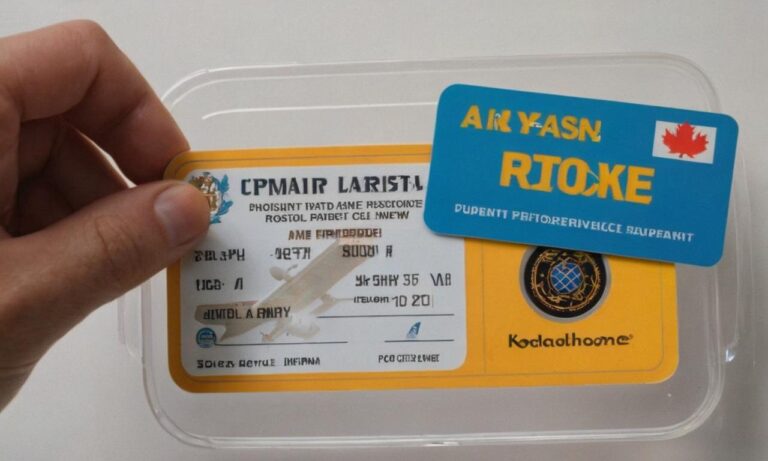Traveling with medical necessities is a common concern for many individuals, especially those who rely on life-saving devices like Epipens. If you’re wondering, “Can you bring an Epipen on a plane?” rest assured that most airlines understand the importance of these devices and have specific guidelines in place to ensure the safety and well-being of passengers.
Airline Regulations on Epipens
Generally, airlines allow passengers to bring Epipens on board, recognizing the critical nature of these devices in emergencies. However, it’s essential to familiarize yourself with specific regulations and guidelines set forth by individual airlines, as policies may vary.
Before your journey, check the airline’s official website or contact their customer service for the most up-to-date information on carrying Epipens. Some airlines may have additional requirements, such as providing a doctor’s note or ensuring the Epipen is accompanied by a prescription label.
Carrying Epipens Through Security
Security procedures at airports are stringent, but they are designed to ensure the safety of all passengers. When carrying an Epipen, it’s advisable to declare it to the security personnel before the screening process begins. This proactive approach helps streamline the security check and minimizes any potential delays.
Place the Epipen in a clear, resealable plastic bag and inform the security officer about its presence. Having a prescription label with your name on it can further facilitate a smooth security check. Remember that TSA (Transportation Security Administration) regulations may differ from those in other countries, so be aware of the rules at your departure and arrival airports.
Storing Epipens During the Flight
During the flight, it’s crucial to have easy access to your Epipen in case of an emergency. Store it in your carry-on bag, and inform the flight attendants about its location. Airlines typically allow passengers to keep necessary medical items within reach for the duration of the flight.
If you have concerns or questions about storing and using an Epipen on a plane, it’s advisable to contact the airline in advance. This proactive communication ensures that both you and the airline staff are well-prepared and can address any potential issues swiftly and efficiently.
International Travel Considerations
For those embarking on international journeys, understanding the regulations of both the departure and arrival countries is essential. Different nations may have varying rules regarding the transportation of medical devices, so research and preparation are key to a smooth travel experience.
Always carry a copy of your prescription and, if possible, have a letter from your healthcare provider explaining the necessity of the Epipen. This documentation can be valuable in case of any questions or concerns raised by airport authorities or customs officials.
Traveling with an Epipen is generally allowed and accommodated by airlines, but it requires careful consideration of specific regulations and procedures. By staying informed, being proactive, and communicating with airline staff, passengers can ensure a safe and stress-free travel experience while carrying this essential medical device.
Frequently Asked Questions
Traveling with medical devices like Epipens may raise several questions. Here are some frequently asked questions to provide further guidance:
1. Can I bring multiple Epipens on a plane?
Airlines typically allow passengers to bring multiple Epipens, but it’s crucial to check the specific regulations of the airline you’re flying with. Some may have limitations or additional requirements for carrying multiple devices.
2. Are there restrictions on the type of Epipen I can bring?
While most airlines permit the standard Epipen, it’s advisable to verify if there are any restrictions on specific models or variations. Some airlines may have guidelines regarding the size and design of medical devices allowed on board.
3. Can I use my Epipen during the flight if needed?
Passengers are generally allowed to use their Epipens during a flight in case of an emergency. However, it’s essential to inform the flight attendants beforehand and follow any instructions provided by the airline staff.
Additional Considerations for Air Travel
Aside from Epipen-specific guidelines, there are other considerations for a smooth air travel experience with medical necessities:
1. Emergency Medical Kit on Board
Some airlines have emergency medical kits on board that include basic medical supplies. Familiarize yourself with the contents of these kits and inquire about their availability in case of unforeseen circumstances.
2. Notifying the Cabin Crew
Informing the cabin crew about your medical condition and the presence of an Epipen can be beneficial. They can provide additional assistance if needed and be aware of the situation in case of any emergencies.
| Country | Regulations |
|---|---|
| United States | Follow TSA guidelines for security screening. |
| United Kingdom | Check with the Civil Aviation Authority for regulations. |
| Canada | Adhere to the Canadian Air Transport Security Authority rules. |
Ensuring a Smooth Arrival
Upon arrival at your destination, ensure a smooth transition by following these tips:
1. Check Local Regulations
Understand the local regulations regarding the transportation of medical devices. This knowledge can prevent any issues with customs and immigration authorities.
2. Language Translation
If traveling to a country where you may not be fluent in the language, consider having translations of essential medical information. This can aid communication with local authorities if necessary.






